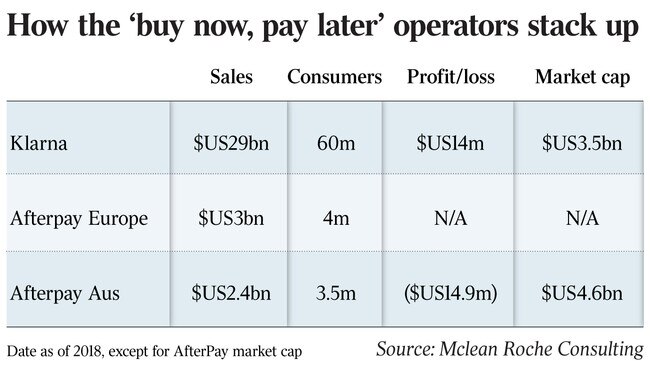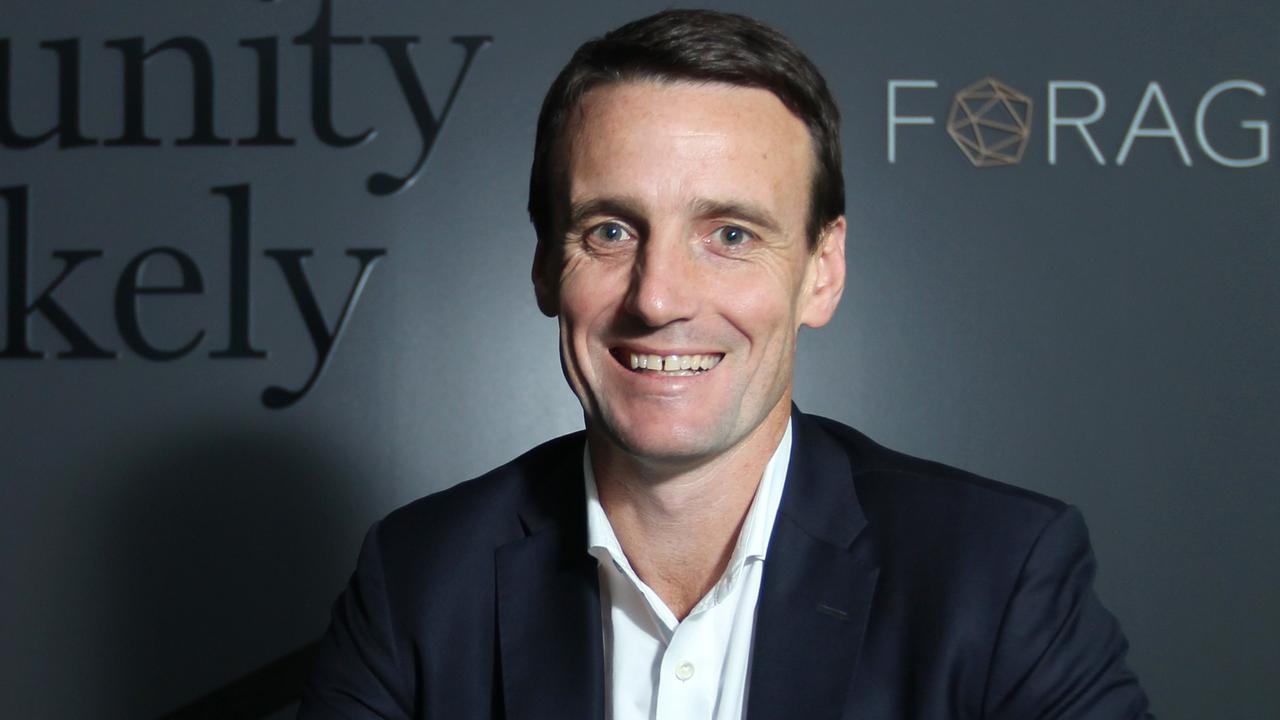Investors appear to have shrugged off concerns about the local audit, and despite sharp swings, the stock remains 114 per cent up this year.
That gives Afterpay a big valuation and a market capitalisation of $6.7 billion.
Given the market’s bullishness on the stock, investors will be hoping the anti-money laundering and counter-terrorism financing stocktake — ordered by financial intelligence regulator Austrac — is well-managed.
On July 29, Afterpay said it had appointed Melbourne-based firm Initialism and Neil Jeans as the external auditor.
An interim audit report is due in late September and a final assessment about a month later.
Given how vigilant US regulators are on similar topics and Afterpay’s push into that market, one can only assume they are keeping tabs on the situation. The Financial Crimes Enforcement Network (FinCEN) is a central US agency in the area.
Afterpay also faces the threat of more competition here and overseas as global giants and smaller players attempt to grab a slice of the $US1.2 trillion global instalments, or buy now, pay later, market.

McLean Roche Consulting’s Grant Halverson, a payments industry veteran and former executive at Citibank and Diners Club, highlighted the seriousness of the Austrac notice to Afterpay.
“It’s a very significant credibility issue. They can’t afford another slip-up,” he says.
Halverson’s analysis also highlights the “exuberance of investors” on Afterpay given a big valuation gap with global counterparts such as Sweden’s Klarna, which was founded in 2005, on both customer, sales and earnings numbers.
Klarna is backed by investors such as international technology investment firm Atomico and venture capital houses Sequoia Capital and Permira. Payments giant Visa, which announced its own ambitions in the buy now, pay later space in June, is also listed as an investor on Klarna’s website.
The Asia-Pacific region is said to be part of Klarna’s strategic growth agenda, so Australia may become an even more crowded buy now, pay later market.
To be fair, Afterpay’s sales and customer numbers have grown since Halverson’s analysis — with active customers now at more than 4.3 million, but that doesn’t close the big valuation gap.
Interestingly, Afterpay Australia has to trade as Clearpay in Britain and if it pushes into Europe, as it was beaten by a company that launched in 2013, two years earlier than it did.
Afterpay Europe is now a wholly owned subsidiary of Arvato — a Bertelsmann subsidiary based in Germany.
Afterpay’s Australian competitors, including FlexiGroup and Latitude, are also getting more involved in the space and applying pressure. FlexiGroup platform Humm last month got a range of key homeware and electrical retailers on board.
Listed rival Zip is also pushing ahead with its own strategy and yesterday announced a partnership with Big W.
Still, Afterpay’s tie-up of 30,600 or so active merchants and its push offshore gives it some protection against the local incursion.
From an investor perspective, though, the hype for the industry doesn’t seem to be subsiding.
This week, Minneapolis, Minnesota-based buy now, pay later group Sezzle hit the ASX with a bumper debut. The Australian stock closed at $2.50 yesterday, more than double its listing price.
Afterpay’s Anthony Eisen will need to roll his sleeves up and navigate the competitive and regulatory headwinds.
McEwan watch
National Australia Bank and its investors may get some insight late today on when its new CEO Ross McEwan will be freed up to get his feet under the desk.
Royal Bank of Scotland — where McEwan is still in charge — is reporting its first-half results and that could provide good timing to appoint or announce his successor.
NAB will be hoping for a short handover period once the new RBS chief is identified so that McEwan can start in his role well ahead of April next year.
But the RBS board needs sign- off from the UK Government Investments, which manages the government’s shareholding.
Head of commercial and private banking Alison Rose is viewed as the internal frontrunner. She is also deputy chief of NatWest Holdings.
Watch this space.
Suncorp’s search
Bancassurer Suncorp is ramping up its CEO search and this column understands executive headhunter Spencer Stuart is moving the process forward.
Suncorp’s board has used the search firm in the past and it’s understood potential candidates offshore have made it on the list.
It reports its full-year results next week and it will be interesting to see if acting CEO Steve Johnston moves away from his predecessor’s return on equity targets.
Mr Johnston is considered a strong contender for the top job after more than five years as finance chief.
Other internal candidates include insurance boss Gary Dransfield and banking and wealth chief David Carter.




Afterpay Touch has a tense three-month wait as its anti-money laundering audit comes to a head, which could prompt US regulators to have a closer look at the business.